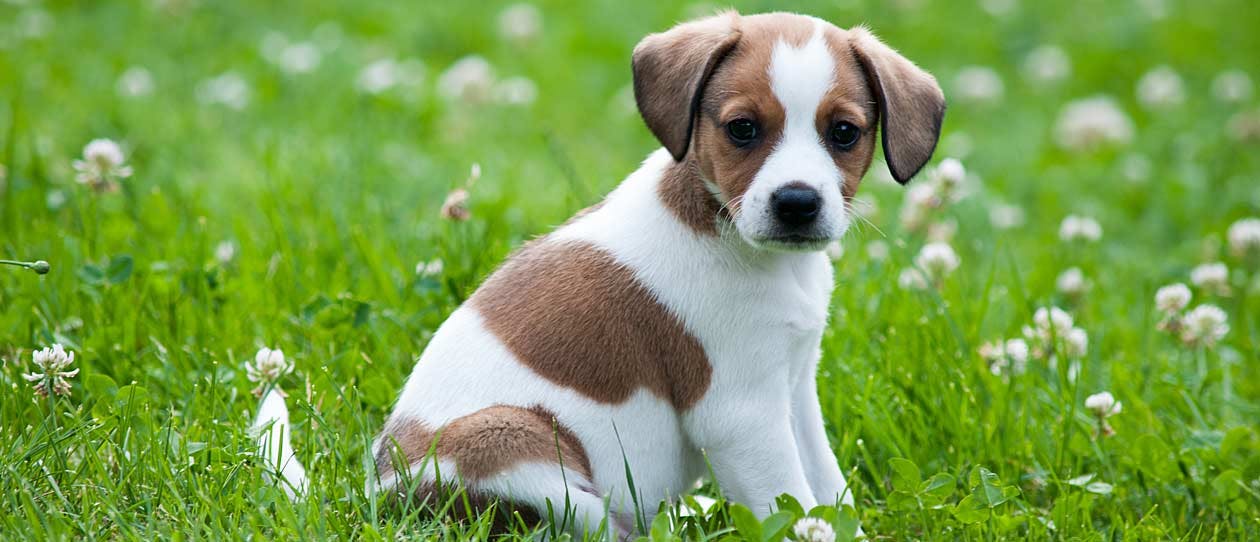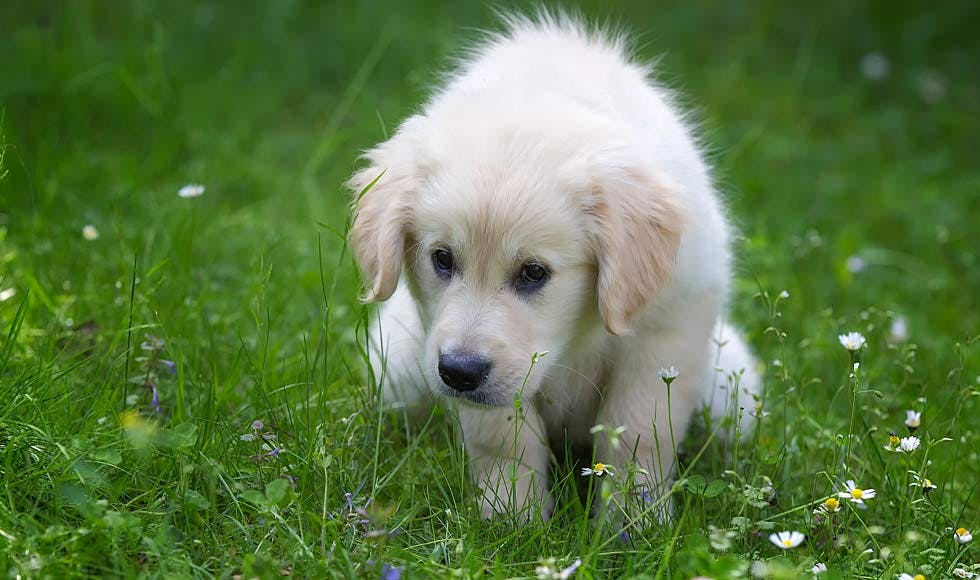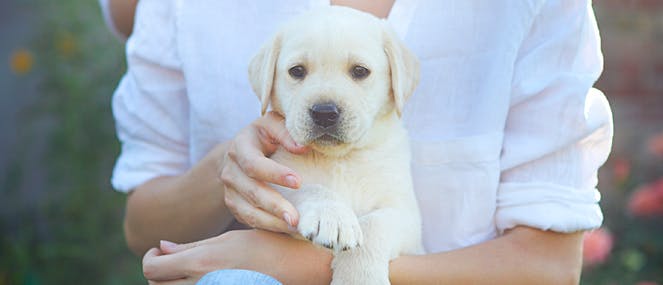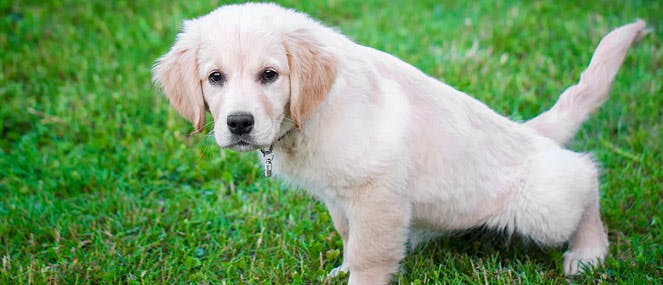
- A Guide To Perfect Your Pet's Health/
- Manage Your Dog's Digestive Health/
- Diarrhoea in dogs: symptoms, causes and treatment


Most dog owners are aware when their dog’s poo changes. A case of diarrhoea is very obvious – but when do we need to worry and when might it be just a one-off?
As with humans, dog diarrhoea means that stools are loose or unformed – there’s often a lot of it, and it may persist for a prolonged period of time. If you notice your canine companion with this condition, you’re not alone, says vet Dr Trish Santos-Smith.
“Diarrhoea is one of the most common issues a vet will see,” she says. But that doesn’t mean you can afford to ignore it. “Diarrhoea is the body’s way of getting rid of toxins,” she says. So, if your dog has watery poos, it’s probably a sign there’s something not quite right in the gut.
What should my dog’s poo look like?
Healthy dog poop, says Dr Santos-Smith, should be formed. “It should be soft, but you should easily be able to grab it into a doggy bag.” Play Doh is a good comparison.
It’s abnormal when it’s too soft – think soft-serve ice-cream – she says. “If it comes out as a liquid, if it’s not formed, if it’s pasty or watery… this is abnormal dog poop.” It’s also irregular if it’s too frequent, with most dogs only requiring bowel movements once or twice a day.
What are the symptoms of dog diarrhoea?
In addition to being unformed, liquid-like and frequent, dog diarrhoea may show in other symptoms, including:
- Mucus or blood in the stool
- A change in colour (yellow or pale, instead of its normal brown colour)
- The visible presence of worms.
Why does my dog have diarrhoea?
“There are quite a few reasons why dogs get diarrhoea,” says Dr Santos-Smith. “Some are mild and likely won’t need a trip to the vet, but others are more severe and may require professional treatment.”
Among the most common reasons are:
- Dietary indiscretions. “When dogs eat or drink random things they find in the yard, in the street, off your kitchen counter… depending on what it is, it can lead to an upset tummy.” Thankfully, dogs’ guts are pretty resilient and can withstand the ingestion of many weird and wonderful things. But there are certain substances that can have an immediate, and intense, reaction in the gut.
- Change in diet.
- Food allergies. “This is when your dog’s body misidentifies a protein from food, usually beef or chicken, as an invader, rather than a food source.”
- Parasites, like intestinal worms, giardia, the parvo virus and bacterial infections.
- Diseases that can cause inflammation of the gut, like bowel disease and cancer.
- Stress and emotional upset.
- Some medications, including antibiotics.
What treatment is available for dog diarrhoea?
It’s essential you don’t ignore your dog’s diarrhoea and hope it will go away of its own accord. “Your pet can dehydrate very quickly from loss of liquids, among other potential long-term health issues” says Dr Santos-Smith.
On the home front, Dr Santos-Smith recommends changing your pooch’s diet to be as bland as possible – think pasta or rice combined with a white meat, like chicken.
Then add probiotics into your dog’s diet, to “balance the good and bad bacteria in the gut,” says Dr Santos-Smith.
“There are some great options available in powder form, which you sprinkle over your dog’s food. This is particularly important if your dog is on antibiotics to treat diarrhoea, or other conditions, as antibiotics can kill the probiotics the body produces naturally in the gut.”
Probiotics aren’t just prescribed for diarrhoea – you can give them to your dog year-round to boost gut health and immunity.
When is diarrhoea in dogs an emergency?
“If you see a change in your dog’s poop and behaviour that is recurring or getting worse, you should get treatment immediately,” says Dr Santos-Smith.
Which might mean your dog:
- Is overly lethargic from dehydration
- Is vomiting as well as suffering diarrhoea
- Is bloated
- Has a large amount of blood in their poop
- Is in pain
- Has eaten something dangerous, such as poison.
Depending on the diagnosis – which may require doing blood work, running a faecal exam or taking x-rays, among other tests – your vet may treat your dog’s diarrhoea with antibiotics. They will also likely tell you to keep up the natural remedies you’ve implemented at home, to ensure your pet gets great gut health back as soon as possible.




